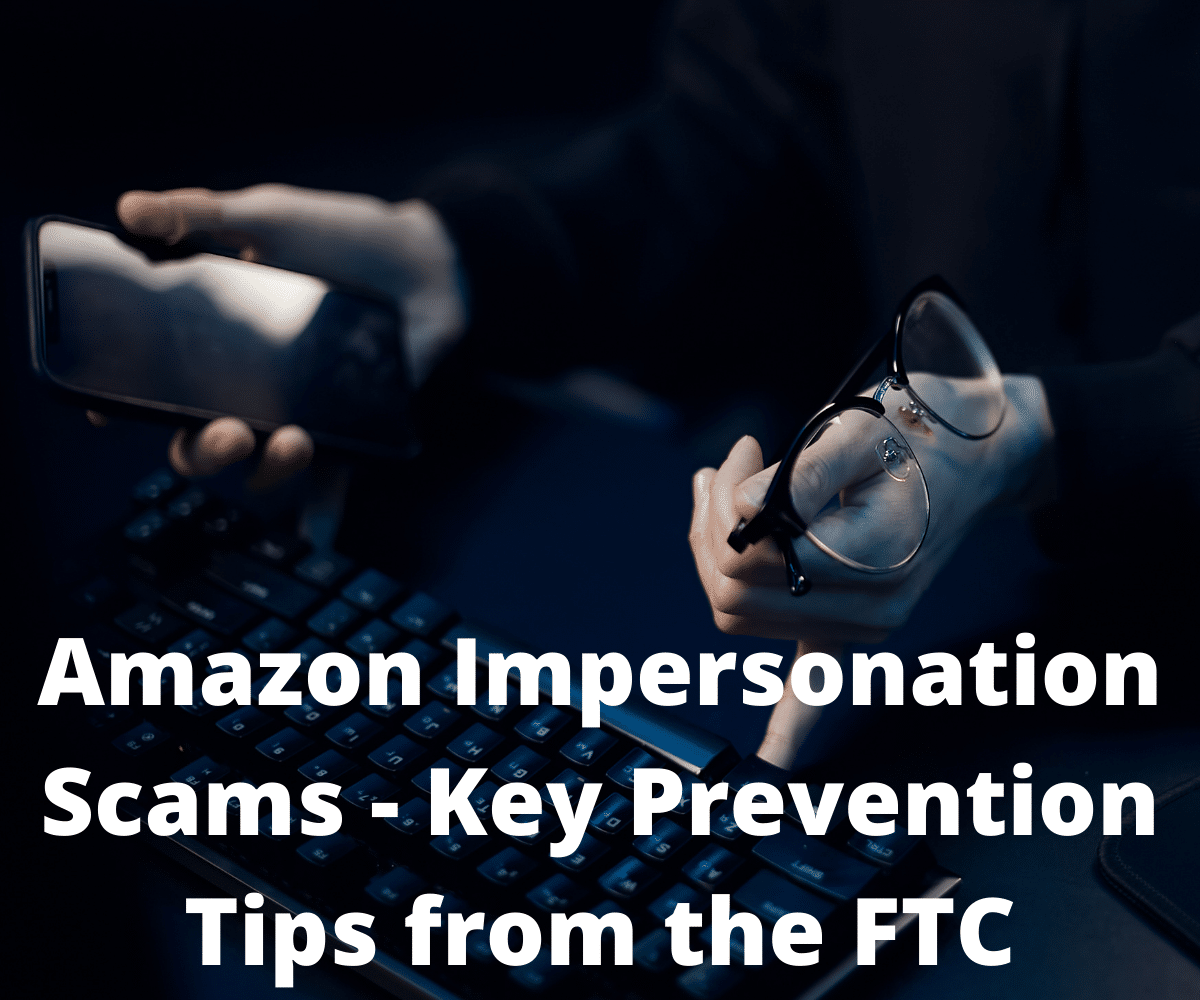Amazon is the most famous eCommerce marketplace. Present worldwide, fast, and convenient, the giant retailer might be the last company consumers correlate with the idea of online scams. However, many are the ill-intentioned people who leveraged Amazon’s name and reputation to prey on people’s finances or steal their personal data. Here are more insights provided by the Federal Trade Commission (FTC) on this topic.
What are Amazon Impersonation Scams?
Table of Contents
Impersonation scams involve stealing someone’s identity, or like in Amazon’s case, pretending to represent a company. Many famous people and big companies have been impersonated by scammers in recent years. It’s easier for con artists and hackers to rely on someone else’s reputation in order to support their claims and make their offer more appealing.
In Amazon’s case, however, scammers didn’t promise to sell or offer anything for free. They simply sent fake notifications to warn clients that their Amazon accounts have been hacked. Another alternative version of the scam revolves around refund offers. People receive an email that notifies them that someone made an unauthorized purchase on their behalf and Amazon is therefore offering a refund.
There are different things scammers are after through these strategies. For example, in the version that involves hacked accounts, they ask clients to reply with their personal details or account information so they can further investigate and secure the account. Sending any information means enabling fake Amazon support agents to actually hack your account and purchase goods in your name or use your information for fraudulent activities.
The version of the scam that lets you know you’re entitled to a refund is more elaborate. In this case, scammers claim they’ve accidentally transferred more money than the due refund. Naturally, they ask for the difference to be transferred back. However, hackers are not using their money to make any refund. They are transferring money from one of the client’s accounts to another account belonging to the same person. Then, once the victim sends the difference back to the scammers’ account, they lose money.
Other scams involve Amazon gift cards. In this case too, victims receive emails that notify them their Amazon accounts were hacked. To check and secure their accounts, people are then urged to purchase Amazon gift cards and share the PIN and card number with the alleged support agents. Those who have fallen for this trick lost the card and the money they used to purchase it.
How to Avoid Amazon Impersonation Scams?
1. Contact Amazon through the normal support channels you use for any request
If you receive an email that lets you know your Amazon account has been hacked or goods were purchased on your behalf, the first logical step is to check your account. If you manage to log in and you don’t find any record of any recent purchase you haven’t done, nor any unauthorized payment in your bank account, you might be dealing with a scam. To clarify matters and help others stay safe, contact the real Amazon by using the normal communication channels provided on their website. Don’t reply to the same email you’ve received. If you were contacted telephonically by an alleged agent, call Amazon’s public support number.
2. Avoid Paying with Gift Cards
These cards have one sole purpose – being offered as a gift. However, because they are easy to redeem, scammers often ask for fraudulent payments to be made through this type of payment instead of traditional methods. If any so-called Amazon support agent claims that for any reason you should buy a gift card and share its information with them, refuse to do it. Contact Amazon to report the claim and everything that preceded it.
3. Don’t Let Anyone Access Your Device Remotely
The thought of having your Amazon account hacked is dreadful. In the end, that’s not just a buyer account, it is an account that’s linked to your banking data, your name, and your address. You don’t want any ill-intentioned people to have access to this information. Hackers know this and they offer to immediately help you restore your account. But to do this, they need your login credentials to access your account and change its settings. Offering your login information truly puts you at risk and no legitimate agent is allowed to ask you to share your credentials with them. Avoid sharing your Amazon login details with anyone who says they work for this company, and generally, with any other person.
Article by – Clearwater Management Korea.
Providing you the best value for your money.

